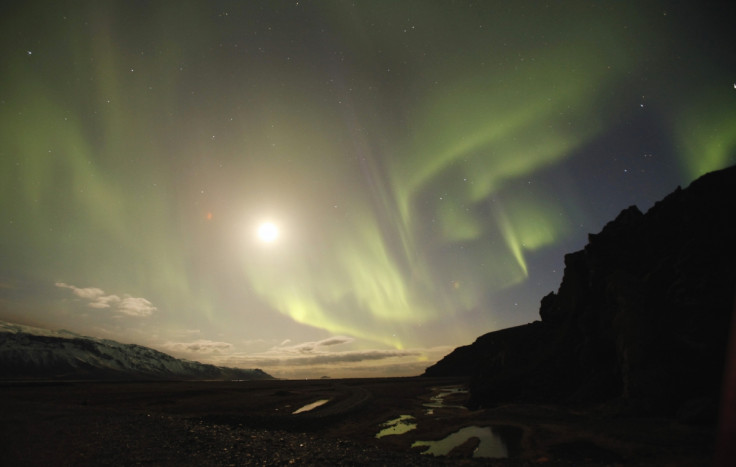Auroracoin Airdrop: Iceland Prepares for Financial Revolution

At midnight, on Tuesday 25 March, over 10 million auroracoins will be made available to the citizens of Iceland in a so-called Airdrop of a new national cryptocurrency which the developers hope will herald a financial revolution.
Every one of Iceland's 320,000 citizens will be able to claim 31.8 auroracoin to do with as they choose, in what the developer of the country-based virtual currency hopes is "the beginning of a permanent revolution, where the power over money is removed from the elite and placed in the hands of the people."
Speaking to IBTimes UK ahead of the Airdrop, Baldur Friggjar Óðinsson, the developer behind auroracoin, revealed a deep-seated distrust of the government and bankers in his country following the financail collapse which began in 2008, is what led to the creation of an Icelandic cryptocurrency:
"The Icelandic government and banking system has engaged in frantic money printing in the past, resulting in devaluation of the krona. This has happened at the expense of the common man."
Óðinsson believes government capital restrictions imposed following the collapse of its banking sector in 2008 are not working. It means people in Iceland have, for the past five years, been forced to turn over all foreign currency they earn to the Central Bank of Iceland. It means foreign companies are wary of investing in Iceland, fearful they will never be able to convert their krona into dollars or euro again.
Financial prison
"This essentially means that the people of Iceland are being forced to pay for the humongous debt incurred by the government and the bankers. The people are being held in financial prison. Auroracoin is an effort to break down the walls of this prison as well as shielding them from future money printing and inflation."
Auroracoin launched at the end of February and within a couple of days the value of the digital currency went through the roof, briefly becoming the second most valuable cryptocurrency in the world, second only to bitcoin.
Notice: I am moving some coins into place for the Airdrop.
— auroracoin (@auroracoinIS) March 24, 2014This was becasue from the beginning, 50% of all auroracoins were already mined, ready to be distributed to the citizens of Iceland. The rest of the auroracoins will be mined in just the same way other cryptocurrencies such as bitcoin are.
However that valuation of over $1 billion (or almost $100 per coin) was short-lived and hours before the Airdrop is due to commence the price of a single auroracoin is now worth 'just' $11.60 with the market capitalisation standing at $124 million.
It means each citizen's share of auroracoin is worth $380 or £230.
Mass adoption

However this wild fluctuation in value is have "nothing to do with the viability of auroracoin" according to its creator but "everything to do with market speculation in a time when only 1% of the total coins are available for trading."
Using the Airdrop system - one which several other country-based cryptocurrencies have now copied - is a quick way to solve one problem which the whole sector faces, says Preston Byrne, a fellow at the Adam Smith Institute and a lawyer specialising in cryptocurrency:
"By issuing tokens en masse to an identifiable class of beneficiaries, country-based cryptocurrencies like auroracoin or spaincoin are trying to solve what has been, to date, a vexing problem for cryptocurrencies – mass adoption."
The long-term success - or otherwise - of auroracoin will therefore depend largely on how interested people in Iceland are in adopting it. In order for it to become a success, it will not be enough for people to just claim their 31.8 auroracoin and look to cash them in or convert them into bitcoins.
Everyday transactions
If cryptocurrencies in general are to become true alternatives to fiat currencies, then you will have to be able to carry out every day transactions with them, such as buying your groceries or paying for a bus ticket.
For this to happen with auroracoin, retailers in Iceland will also need to get on board, developing ways to accept the cryptocurrency from citizens.
"This development of infrastructure will take place in the year following the Airdrop and the gradual adoption of Icelanders claiming their gifts of 31.8 auroracoin. Then we will we be able to measure Auroracoin's success," Óðinsson says.
However this is not going to be as easy a step to take as it may sound, according to Byrne:
"It's far from clear whether an airdrop will be sufficient to create an appreciable network effect from thin air. From day one, they will be competing against existing cryptos for acceptance. Local businesses in Iceland which are not already part of the bitcoin economy will need to invest time and resources to accept, and assess the risks inherent in accepting, cryptocurrencies generally before they will be in a position to accept nationalised incarnations thereof."
Looming presence
There is also the looming presence of the Icelandic government and financial regulators.
On 14 March the parliament held a closed session to discuss the impending Auroracoin Airdrop without inviting submissions from any outside parties.
Last week a a joint statement was issued by five government bodies entitled Public warning concerning virtual currency in which the Central Bank states that the use of auroracoin is not a threat to financial stability in Iceland and does not fall under the jurisdiction of the bank according to law.
There had been reports that the Icelandic government could even gone so far as to ban auroracoin ahead of the airdrop this week, but Óðinsson is cautiously happy with the statement:
"Of course, no one can predict the actions of politicians and central bankers, but judging by this statement, there are no plans to make Auroracoin illegal at this time."
"Free of monetary shackles"
It is impossible to tell what the reaction, if any, will be in Iceland once the coins become available. Coverage of the cryptocurrency has been growing in the country, and Óðinsson believes people's faith in the traditional financial institutions has been lost and they are therefore looking for an alternative:
"People are fed up with the Icelandic krona and its constant devaluation and inflation by politicians and their financial cronies. They want to be free of the monetary shackles that come with a defunct fiat currency."
On a more pessimistic note, Byrne believes that patriotic cryptocurrencies like auroracoin, spaincoin and aphroditecoin, won't have an easy time in gaining significant traction:
"I suspect the national cryptos have an uphill battle ahead of them; the airdrop distribution model seems most likely to result in the introduction of new entrants who will use their holdings to trade into the highly internationalised cryptocurrency ecosystem, and not the establishment of standalone national crypto-economies."
© Copyright IBTimes 2025. All rights reserved.






















